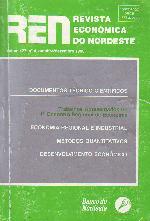AGRICULTURA FAMILIAR EM TRANSFORMAÇÃO NA AMAZÓNIA: O CASO DE CAPITÃO POÇO E SUAS IMPLICAÇÕES PARA A POLÍTICA E O PLANEJAMENTO AGRÍCOLAS REGIONAIS
DOI:
https://doi.org/10.61673/ren.1996.2124Keywords:
Family Agriculture, Agricultural Development, Capitão Popo Brasil-Northam Region-PardAbstract
Analyses of agricultural development in the Amazon start with the notion (and in general confirm it) that agricultural development here reproduces the stages of frontier evolution in which peasant fronts based on shifting cultivation, exhausting their possibilities in one area, reproduce themselves in another. Assimilating the labor incorporated there, they proceed in a process of "primitive accumulation which is fundamental for the consolidation of the pessant. This perspective does not recognize the possibility of an intermal transformation of family agriculture a basic reformulation of the technical patterns which could lead to their fixation in space. The limits to capital formation have shown themselves to be absolute in this context, blocking the process of Increasing economic efficiency which could break with the patterns of long fallow shifting cultivation. This article analyzes the validity of this hypothesis considering a case study of the municipality of Capitão Poço, in the state of Park.








